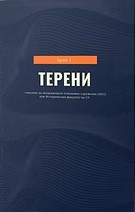Програма «Еразъм» и нейната роля за изграждането на европейска идентичност
DOI :
https://doi.org/10.60053/TER.2018.1.85-94Резюме
Erasmus program is a successful example of European integration and a symbol of European identity. Identity is a sense of belonging to a category defined by the general characteristics and recognized by other members. Definition of individual identity - "what you have with some people and what distinguishes you from others." The Erasmus program is a function of integration policy in Europe. It is both a political tool and a social process with active and passive elements. A passive element means that we explore how identity as a social process changes European integration. An active element is a political impact.
We can differentiate political and cultural European identity. Both identities are important because the political European identity implies that an individual identifies himself with the European Union, but a European cultural identity suggests that the individual shares a common culture, social similarities, ethics, values, and religion. However, in order to achieve this process of European integration by more people and peoples, a more integrated sharing is needed not only of political ideas but also of values, science, goods and cultures.
Библиография:
Bruter 2004: Bruter, M. Civil and cultural components of a European identity: A pilot model of measurement of citizens’levels of European identity, 279. https://books.google.bg/
Habermas 1999: Habermas, J. The European Nation-state and the pressures of globalization, 354-360.
Oborune 2013: Oborune K. Becoming more European after ERASMUS ? The Impact of the ERASMUS Programme on Political and Cultural Identity. In: Journal of Transdisciplinary Studies, Vol. 6, No. 1, Faculty of Arts and Social Sciences, University of Sarajevo, page 186-190. http://epiphany.ius.edu.ba/index.php/epiphany/article/view/60/61
Papatsiba 2005: Papatsiba, V. Student mobility in Europe: An academic, cultural and mental journey? Some conceptual reflections and empirical findings, p. 5-6.
Sigalas 2006: Sigalas, E. Remaining proud of their national identity, yet uniting ever more closely? The Erasmus students as the role model European citizens, University of Reading, UK, Department of Politics and International studies, p. 20-23. http://citeseerx.ist.psu.edu/viewdoc/download?doi=10.1.1.544.9284&rep=rep1&type=pdf
Sigalas 2009: Sigalas, E. Does Erasmus Student Mobility promote a European Identity?, p.12. https://ideas.repec.org/p/erp/conweb/p0036.html






